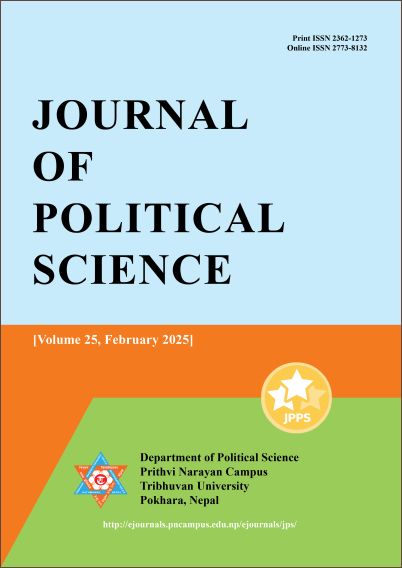Soft Power of Asian Land-Locked Countries: A Comparative Study of Nepal and Mongolia
DOI:
https://doi.org/10.3126/jps.v25i1.75782Keywords:
Diversification, landlockedness, national branding, pan-regionalism, soft power, third neighbour policy and national brandingAbstract
This study explores how Nepal and Mongolia, two landlocked Asian countries, utilize their soft power resources to overcome geographical limitations and advance their national interests. The research examines the concept of soft power, its application in both developed and developing countries, and how Nepal and Mongolia have adopted distinct strategies to address their landlocked status. Using context and policy analysis, the study highlights Nepal's active border engagement policy to overcome the landlockedness issue, which includes creating pan-regional networks, prioritizing mini-lateral initiatives, establishing spiritual circuits, diversifying exchanges, and promoting its unique cultural festivals. In contrast, Mongolia focuses on its "Third Neighbor Policy," engagement in international organizations, promotion of its historical legacy, and branding itself as a developmental state. The findings suggest that while both countries face similar challenges, their strategies differ significantly, offering valuable lessons for other landlocked nations.
Downloads
Downloads
Published
How to Cite
Issue
Section
License

This work is licensed under a Creative Commons Attribution-ShareAlike 4.0 International License.




